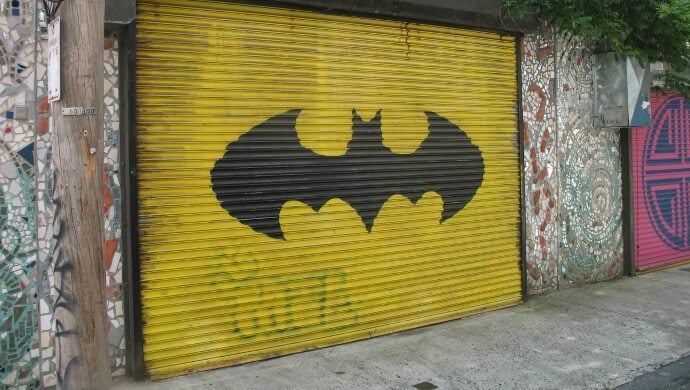Peter Thiel’s New York Times op-ed is a masterful display of logical contortion. Is he correct?

The parallels are too obvious. The eccentric billionaire, who under the shadow of night fights the poisonous maladies affecting our society. And when the public calls him a rogue, taking justice into his own hand, he reveals himself to simply be a necessary hero. The ‘good guy’ willing to get his hands dirty in order to save Gotham.
In May, the Batman pulled off his mask and revealed himself to be Peter Thiel; billionaire tech saviour of a corrupt media industry. He was met with derision and anger. Did he not understand the ugly precedent being set for freedom of speech protection?
In an op-ed article to the New York Times published overnight, Thiel tried to lay out his argument for why financing the lawsuit of Terry Bollea (Hulk Hogan) against the always-provocative Gawker is first and foremost a defense of personal privacy.
Also Read: The four times Go-Jek made the news — and why this time should be a trigger for change
He proclaims that the “press is too important to let its role be undermined by those who would search for clicks at the cost of the profession’s reputation.”
I am 100 per cent sympathetic to Thiel’s argument, and his public outing crossed an ethical line that should follow author Owen Thomas for the rest of his career. Publishing the Hulk Hogan sex tape might have crossed a legal line, and the courts seemed to agree.
His argument that a person’s sexuality is not a subject for public discussion (unless they so choose to make it the announcement public for civil rights reasons) is valid, and in my opinion accurate.
But framing the argument around gay rights was manipulative — and in doing so he compared his travails to those of LGBT Olympians outed in Rio by The Daily Beast. The difference is, of course, Thiel is a billionaire who was irked, while the Olympians could be arrested (or worse) in their home countries.
It is an especially fresh argument coming out of the mouth of a man who, a month earlier, publicly supported a Presidential candidate openly trumpeting Islamophobic immigration policies.
But the big issue Thiel has stumbled over is the fact that Gawker does fantastic journalism and consistently reports some of the most important stories coming from American media. It just happens to bury the diamonds in piles of horse shit.
And that right there should betray my feelings about Gawker. I despise 90 per cent of what they publish and find it demeaning, judgemental, rude and crass.
Yet, those exact traits spun positively might be called ‘doggedness’, ‘bravery’ and ‘mettle’. And they’ve shown a light on the unsavoury, and important, underbelly of American culture.
Here are some examples:
- Publishing the first big expose of the Silk Road.
- Reporting that Buzzfeed removed articles critical of advertisers.
- Accusations that Facebook routinely censors news with a conservative political leaning.
- Exposing the disturbing domestic violence accusations against professional American Football star Greg Hardy.
To highlight the ‘diamonds in horse shit’ metaphor, today’s featured stories are Pokémon Go as a government surveillance conspiracy, the nanny of Rupert Murdoch calling the home working environment a ‘war zone‘ and something about 4chan’s role in bringing to justice a British woman who put cats in trash cans.
Thiel’s logical advantage he forces the debater to defend Gawker, and defend its actions as something that should be protected. He takes advantage by equating the Gawker’s Hulk Hogan article to revenge porn.
After outlying the details of the Intimate Privacy Protection Act, which would strengthen the legal case against revenge porn profiteers, Thiel wrote:
“This is a step in the right direction. Protecting individual dignity online is a long-term project, and it will require many delicate judgements. We can begin on solid ground by acknowledging that it is wrong to expose people’s most intimate moments for no good reason.”
In the world of debate, this is called ‘Argumentum ad misericordiam’ or appealing to pity. No, Thiel, the argument is not that free speech should be absolutist and revenge porn should be legally permitted.
The reason there has been so much pushback is because of the fear that, should Thiel read this article and decide that he does not approve of it, he can sue me into oblivion.
Even if the law is on my side, my money (and the money of most media organisations) would hit empty far before any relevant verdict was decided.
Thiel ended the op-ed with a final call to action. He wrote:
“That is the kind of clear moral line that Gawker and publishers like it have sought to blur. But they can’t do it if we don’t let them.”
Sadly, it was the most prescient line in the entire op-ed.
—
The post Peter Thiel: The hero Gotham deserves? appeared first on e27.